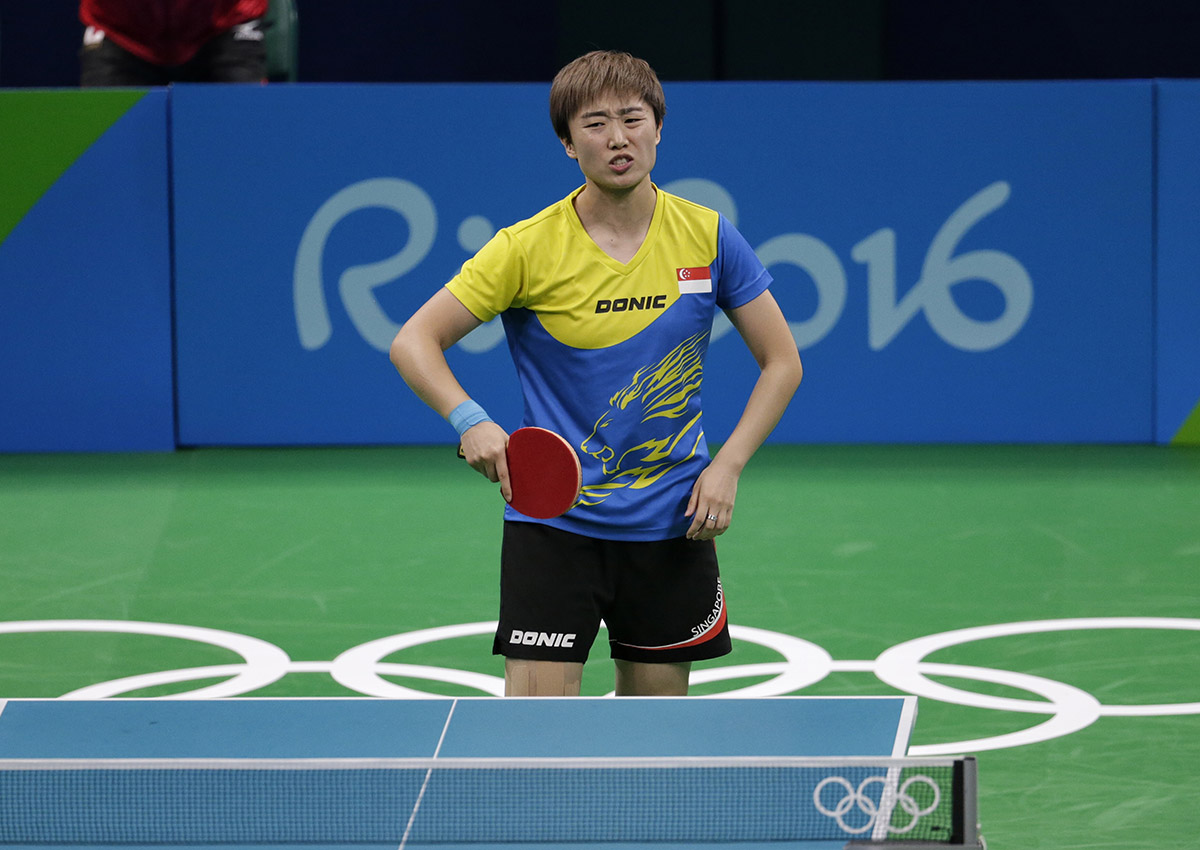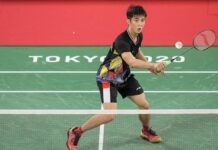SINGAPORE – In a chaotic sporting world, facts matter because they offer us clarity. They tell us how fast an athlete runs and how many a team scores. Facts have weight, they carry proof, they settle arguments.
Yet not enough facts have emerged in the sad soap opera that is table tennis. Instead accusation has walked with allegation and gossip has met with innuendo. After a wonderful 12 months for Singapore sport – the SEA Games, the ASEAN Para Games, Joseph Schooling’s swim – this saga has arrived like an unwanted bruise.
Facts, stated right at the beginning, might have reduced the endless conjecture and insinuation which followed. Facts, neatly listed, might have avoided later press statements and further meetings between the parties. Facts would have stated a clear position, except we still don’t know precisely why one of the finest athletes to represent Singapore is surplus to requirements at the Singapore Table Tennis Association.
Age? Even my mother, who couldn’t tell ping from pong, knows 30 – which is what Feng Tianwei is now – on its own means nothing in sport. Serena Williams got to three Grand Slam finals at 34 and won one; Kaori Icho won a fourth consecutive Olympic wrestling gold at 32; and Jemima Sumgong won gold in Rio in the women’s marathon at 31.
So if it can’t be age, it must be something else. Form? Could be. But Feng is world No. 5, which from any angle is impressive. Injury? If she’s falling apart just get a doctor to certify it. Attitude? If she’s a prima donna, let’s list her transgressions and chart her misconduct. A younger team is being built? No problem. Just tell us your detailed plans.
But still the case hasn’t been laid out specifically, it isn’t a list of cut and dried facts which makes us think: Oh, of course, no question, she must go.
Read also: Was Feng Tianwei axed because of disciplinary issues?
I have no interest in taking sides and no defence is being made for Feng here. This is not about whether she is a red-blooded Chinese or a true-blue Singaporean. This is about fairness for surely that’s what sport is supposed to preach.
This divide is unsurprising because athletes and officials are always going to scrap, fall out, sulk and accuse. Every issue, from selection to funding, is guaranteed to aggravate them. Administrators are accused of favouritism and athletes are charged with conceit. It’s the nature of their awkward marriage: The athlete is concerned with self-interest, the administrator is expected to look out for everyone’s interest. Each one thinks they know best.
Despite their daily encounters, misunderstanding lurks. Officials need to appreciate that athletes care for performance not posturing; the more politicking they see from administrators, the less athletes respect them. And if officials accuse athletes of becoming unbearable divas – which is inexcusable – then it often happens because pampering officials let it go so far.
Athletes, in turn, need to fathom that most officials work for no fame – aside from those who leap into photographs – and little money. These people in suits, they love sport, too. If athletes are the ornaments to sport, officials – the best ones – are its masons. They build stadiums, design great leagues and ensure riches for sportspeople. Dedication isn’t restricted to the athlete who lifts weights at 6am, but includes the administrator who slogs past midnight arranging schedules.
Read also: I won’t switch sides, says Feng
But eventually the centre of sport must be the athlete and in Asia – at the risk of generalisation – we’re not always comfortable with this.
Often we want athletes to follow orders and yet lead in the middle. We wish them to listen but don’t always give them a voice. We’d prefer if they weren’t cocky and yet expect them to dominate under the spotlight. We’d rather they were obedient when it’s free spirits we must harvest. We forget that athletes who always fall in line can’t be expected to stand out.
Of course, we don’t want athletes who are rude and disruptive but we must accept that they are complicated, fascinating, driven creatures. They wear pain every day, travel to the extremities of emotion, sit in lonely rooms defeated, obsessively hit a ball a thousand times a day and believe they are better than most people because that’s how they beat those people. They are not like us.
It doesn’t mean we indulge them, but we should understand them. And because Theodore Roosevelt famously said, “the credit belongs to the man who is actually in the arena, whose face is marred by dust and sweat and blood”, we should also listen to them.
Read also: STTA will support Feng Tianwei in international competitions
And this cuts to the very heart of this imperfect union of athlete and official, which is communication. They have to exchange words not jibes; they have to do what they ironically enjoy most, which is to find solutions. In a small nation, with limited sports funding and talent, it is the only way. If it still doesn’t work, if the athlete has erred too greatly, if even an athletes’ commission – a necessary addition to offer athletes support – can’t successfully mediate, then a separation is fine.
But through the process of a transparent divorce, we should remember this: Sport is a harsh place because the life of athletes is short, their future constantly unknown, their wages always uncertain. It doesn’t mean officials must mollycoddle them but nor should they ever be callous. This, after all, is a deeply emotional activity involving a human being, which we must not turn into a cold transaction. To an athlete who has brought joy to a nation, even in parting we must always bring dignity. Else no one wins. Only sport loses.

This article was first published on Nov 05, 2016.
Get a copy of The Straits Times or go to straitstimes.com for more stories.






